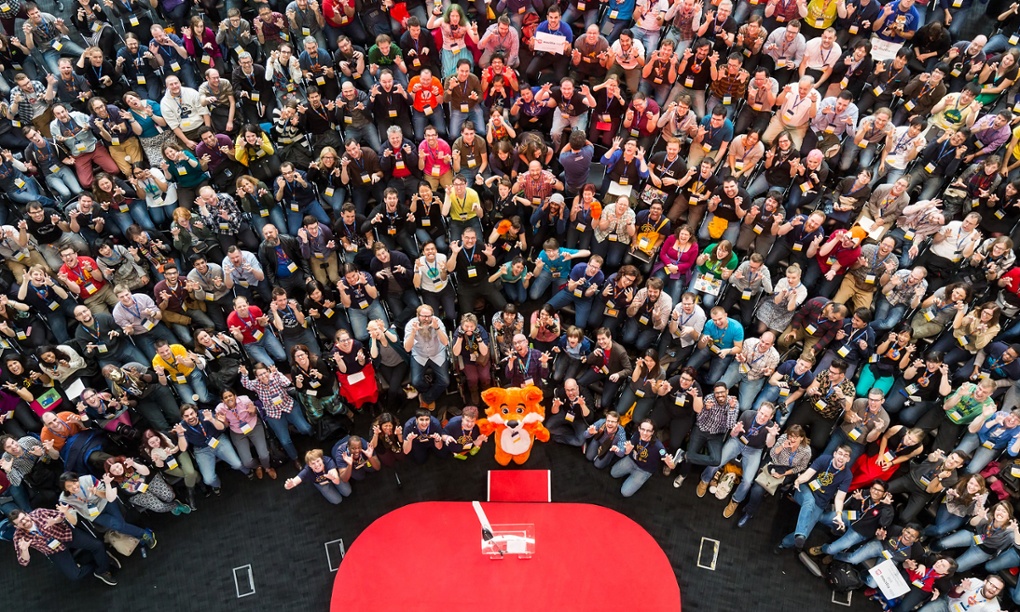I think the moment I first realised this tech event would be different was when I saw a pile of napkins bearing this legend:
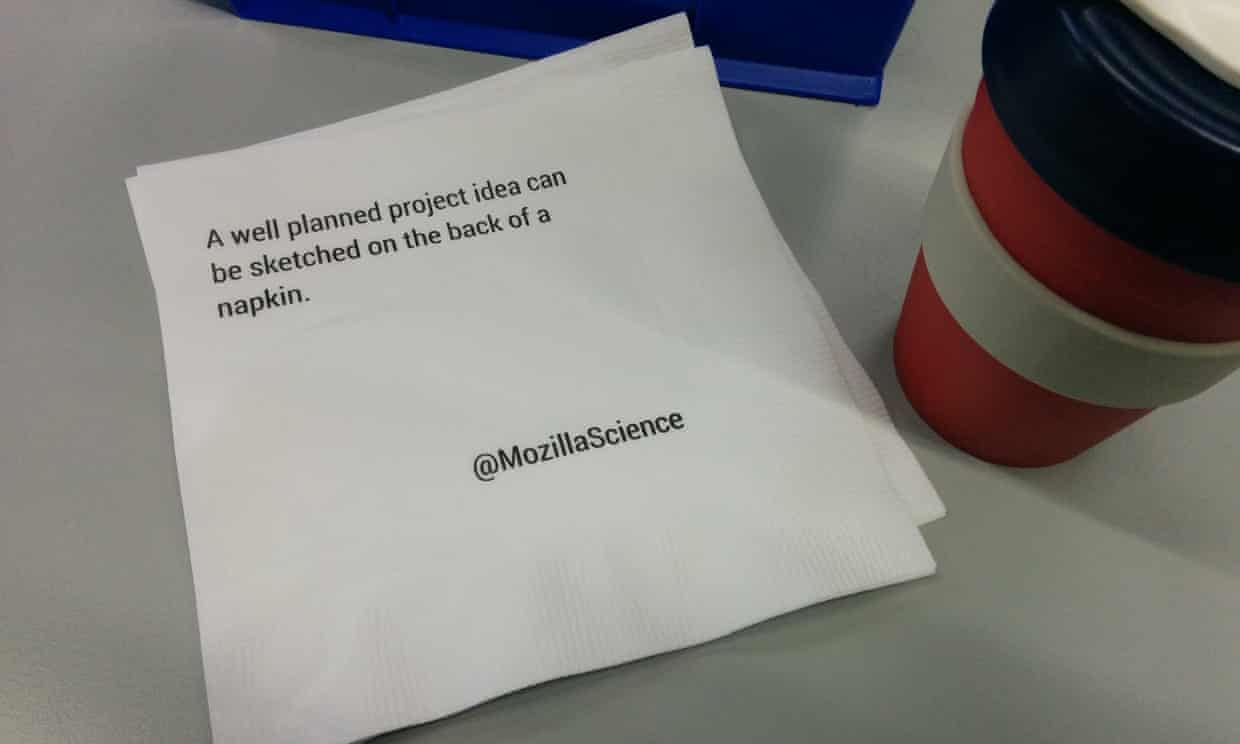
What happens when you bring together 1700 hackers, teachers, journalists, artists and other creative technologists for a weekend in a vast, ideas-filled space? The answer – in the best possible way – is chaos.
Chaos gets a bad rep. Mozilla Festival, now in its fifth year and affectionately known as MozFest, is unashamedly thrown together: sessions are spontaneous and guided by their participants; banners, posters and enormous flying blimps litter the corridors and teaching spaces; wild-eyed children run past armed with robots and LED boards; a life-sized Firefox mascot wanders around hugging excited festivalgoers.
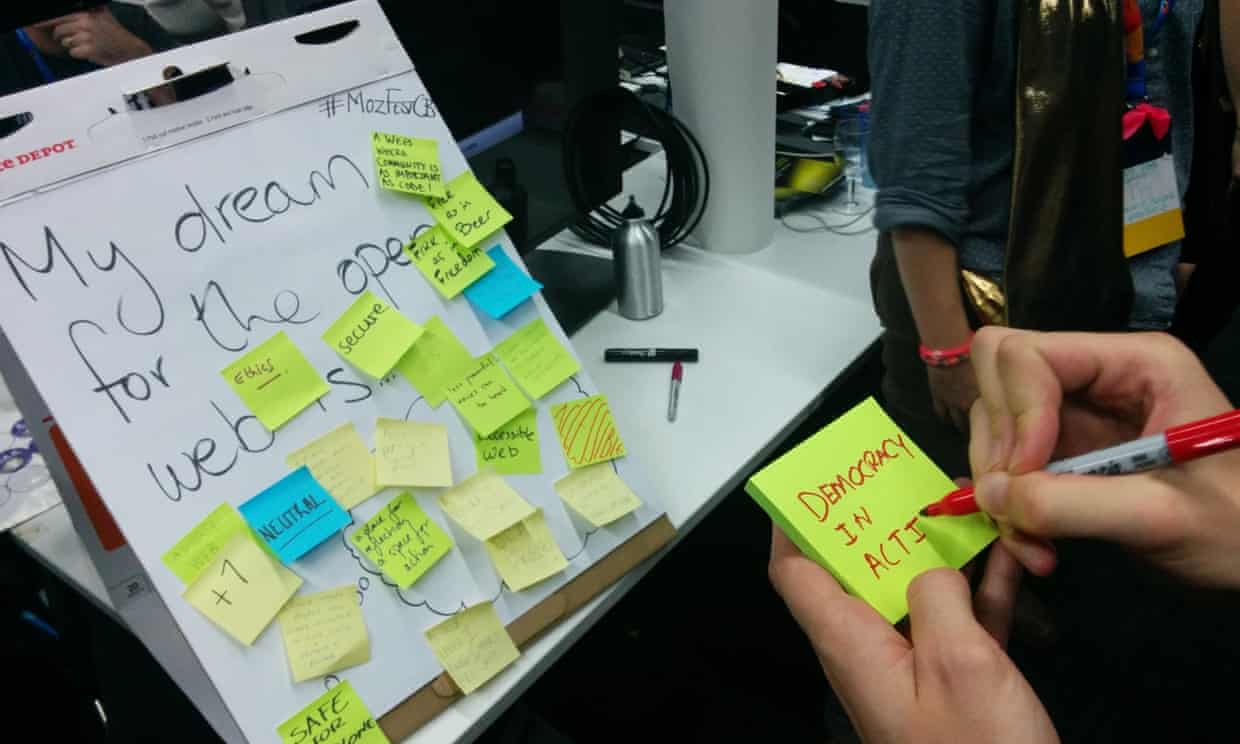
The festival is loosely structured around eleven “tracks” with names like Open Web With Things, Art and Culture of the Web, Policy & Advocacy and (most relevant for us at the Guardian) Source Code for Journalism. Each track is made up of multiple sessions over the two days of the festival, covering as broad a range of topics as making fonts out of Minecraft, principles for an open web and cleaning up mangled datasets. There are almost no “closed” sessions: each space is divided by a few movable partition walls, meaning sound from animated speakers in other sessions frequently bleeds into the session you’re participating in. It all seems to work, though.
As tech events go, MozFest had the most diverse set of attendees and facilitators I’ve ever seen. We spoke to people from Tennessee, Singapore, Mombasa and India, with over 50 countries represented in total. Mixed in among the sessions on building for the web and crowdsourcing data were a wide range of workshops on inclusivity, community diversity and closing the gender gap – the prominence of this track alongside all the others demonstrates Mozilla’s commitment to the openness – in every sense – of the web.
Mozilla, of course, are huge on advocacy and activism: many of the opening and closing keynote speeches are given over to teaching the web (whether code or digital rights) to children, or helping the developing world gain a foothold before “empire-building” tech giants monopolise them, too. CoderDojo CEO Mary Moloney spoke passionately on the Saturday morning about how the festival’s audience of “giants” should reach down and help a “small person” onto their shoulder. Director and life peer Beeban Kidron gave a fantastic speech on iRights, a movement to teach young people about online behaviour. Mozilla’s “chief lizard wrangler” (aka executive chair Mitchell Baker) was there to talk about Mozilla’s mission and Firefox’s origins in a closed web.
Here are a few session highlights from my two days at MozFest:
Hack the News Org (Dan Sinker & Trei Brundrett)
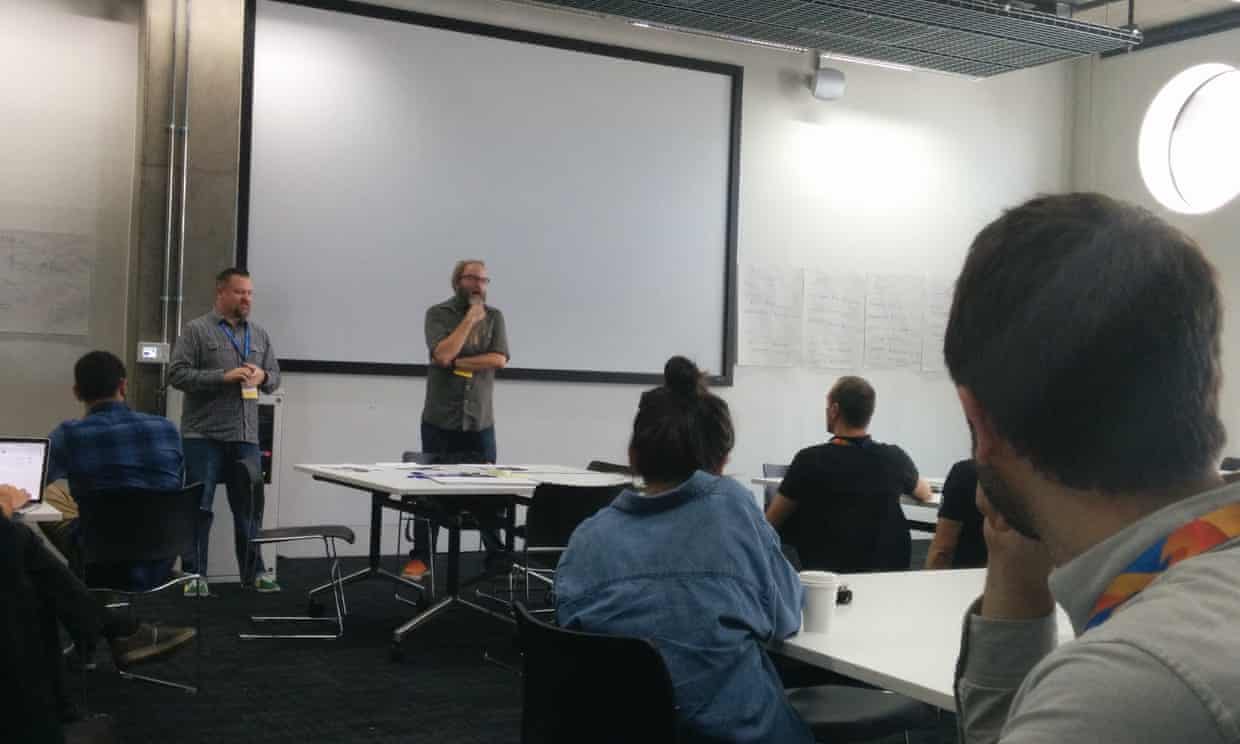
This interactive workshop had us mixed into groups and budgeting for a fictional news organisation and working out how we’d make a return on investment (or at least, prove we were sustainable) with a budget of $2m over two years. Our group were challenged to spec out a “community website for Argentinians about urban planning” which was challenging to say the least, and we ended up arguing over how much outsourcing we’d do and ended up with $1.9m left over at the end. Still: thinking in real terms about how to fund digital news was an interesting thought experiment and definitely generated debate.
Hacking the Gender Gap (Georgia Guthrie)
This group discussion was centred around a personal task: each attendee had to write a positive and negative moment in their tech experience, along with their age, and pin it to a board in a chronological timeline. The range of experiences was fascinating, if depressing: many female attendees experienced early moments of joy and excitement discovering computing, but equally many were told by authority figures that “girls can’t be programmers”, or reached their teenage years to be told to pander to the male gaze in order to win respect. The rest of the session was devoted to discussing the issues raised and answering questions as a group generally about practical things we could do. The session was only an hour but felt like it could’ve spanned the entire weekend.
I have listicles, is there a cure? (Mallory Busch)
Perhaps the best title of the sessions I went to, this workshop aimed to challenge us to consider the infamous BuzzFeed “listicle” and see how it could be applied to more serious news. Each group was assigned an article to convert into listicle format: while some groups struggled, finding their topic challenging to trivialise, my partner Nic and I managed to turn this Huffington Post story about an arrested busker into a fairly respectable draft listicle. As well as being enormously fun to produce this was actually quite an interesting challenge: how can we distil the essence of a story into the important, entertaining and relevant facts?
Facilitating a session
Now, it’d be quite vain to list my own session as a highlight, but it’s worth discussing the experience of contributing back to MozFest. Over 500 of the 1700 attendees ran sessions – my own, along with Guardian colleagues Wendy Orr and Laura Oliver, was called Moderation in Moderation, and dealt with working with online communities.
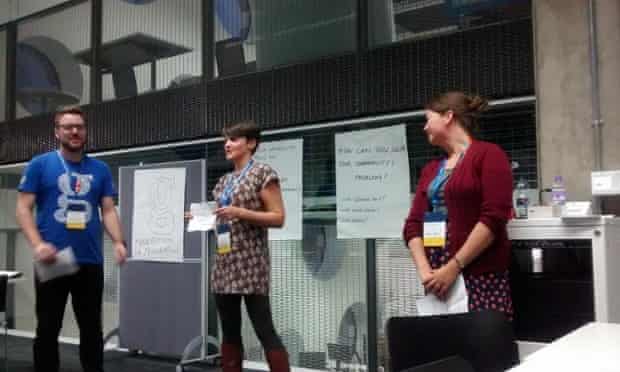
We’d been given the slot of 5-6pm on Sunday – the final hour of the final day. We were a bit worried that nobody would show up, but in true “if you build it, they will come” style, a steady trickle of attendees showed up and helped us brainstorm ideas about managing real-world online community challenges. We’d been told in facilitator onboarding that a MozFest session is really just a group conversation – once we got our groups going we were able to sit back and get involved ourselves. It was genuinely rewarding despite the panic that nobody would come, and an experience I’ll definitely repeat next year.
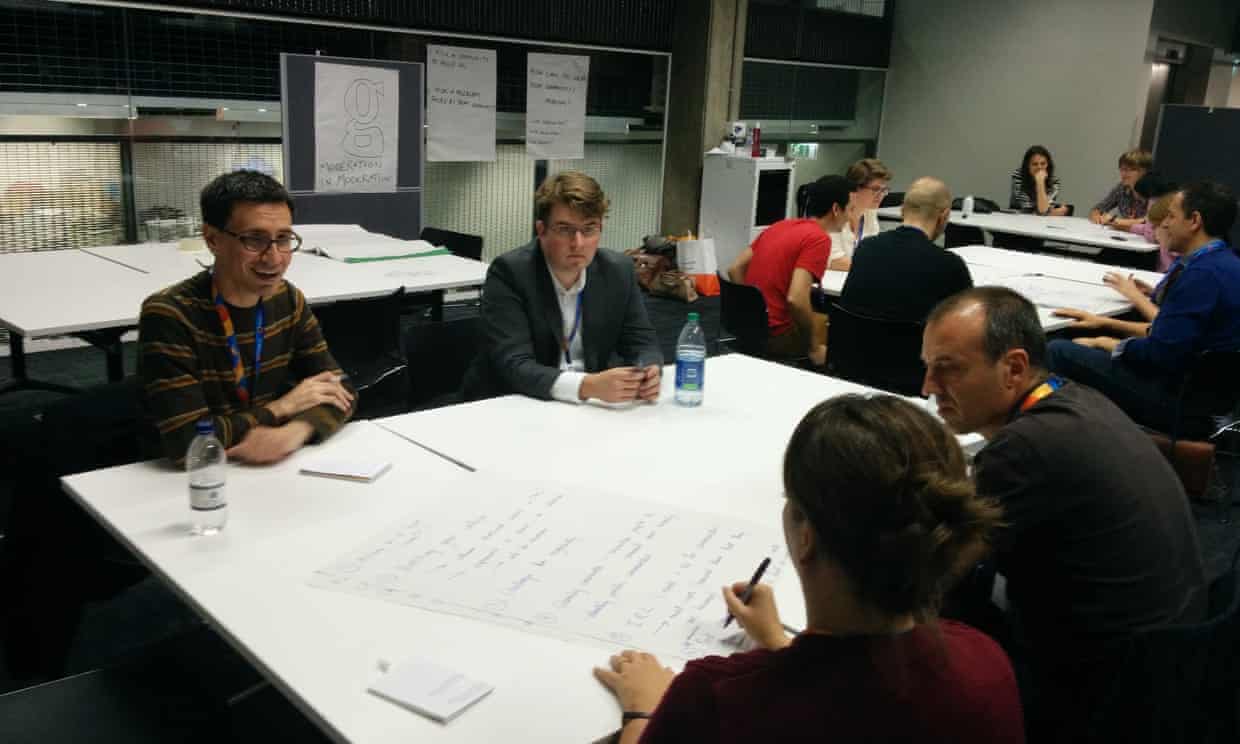
All in all: MozFest is unlike any other event I’ve attended, except possibly a tech-themed Glastonbury: there’s far too much going on that you can’t possibly see all the stuff you’re interested in, but there’s so much going on around the fringes and in the spaces between “stages” that you’ll almost always end up discovering something brilliant. The coffee was absolutely fantastic, the enthusiasm and passion of the people running the show was infectious, and to boot: they gave out 1000 free Firefox OS smartphones (aimed at emerging markets) to nearly every attendee – with the request that we report bugs, put them through their paces and even create apps for them.
For a £40 ticket price, what more could you ask for? Get yourself to MozFest in 2015 and come and say hi.
